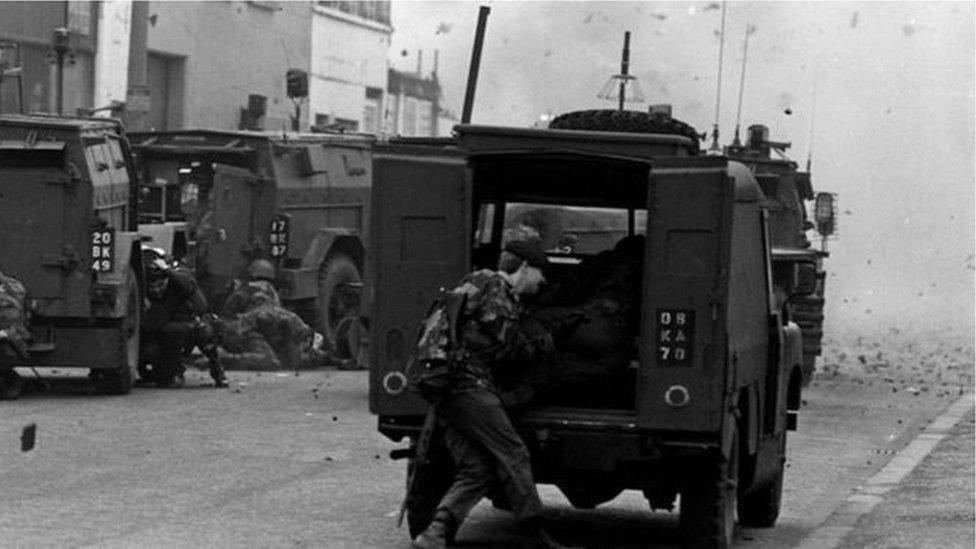PSNI chief George Hamilton 'could live with' Troubles amnesty
- Published

Sir George Hamilton was speaking after being given an honorary degree by Ulster University
Northern Ireland's police chief has said "he could live with" a Troubles amnesty as part of dealing with the vexed issue of the region's past.
Chief Constable Sir George Hamilton told an event in Belfast: "Personally, I do not believe in it."
With the government looking at ways to protect soldiers from prosecutions, Sir George said a special case should not be made for them.
"There cannot be different rules for different citizens," he said.
The Police Service of Northern Ireland (PSNI) chief is to retire later in June after 34 years as a police officer.
'Part of post-conflict society'
He made his remarks in a question and answer session at Ulster University, where he received an honorary degree for his "outstanding contribution" to policing.
His said Northern Ireland needed to "untangle" itself from the legacy issue.
As part of a solution, the PSNI wants to hand over hundreds of Troubles-era cases to a new, independent investigatory body.
When asked if a statute of limitations, or amnesty, should apply to everyone, he replied: "Personally, I don't believe in it but I could live with it... that's part of living in a post-conflict society."

'A striking admission'
Analysis by Julian O'Neill, BBC News NI home affairs correspondent
Sir George Hamilton's remarks are his most candid on the subject of legacy in interviews marking his farewell.
It is worth remembering an amnesty is not on the table.
But in spite of being rejected by Northern Ireland Secretary Karen Bradley last year, the issue has not gone away.
Moves by the Ministry of Defence to consider protections for soldiers have seen it re-emerge.
It must be stressed Sir George was clear in not favouring an amnesty.
But that he "could live" with one is a striking admission.

Sir George also expressed his concern at the political climate, with parties locked in discussions about restoring power-sharing devolved government at Stormont.
"Some mindsets have been rearmed," he said.
"We are more polarised and people are in deeper trenches than 20 years ago.
"We are slipping backwards from the Stormont House Agreement."
'Insult to officers'
In May, Defence Secretary Penny Mordaunt said she wanted to explore ways to end investigations of troops who served in Northern Ireland during the Troubles.
But questions have been raised about whether a statute of limitations would be possible if it only covered soldiers and not others involved in the Troubles, such as paramilitaries.
In 2018, the Police Federation said it opposed an amnesty for killings during the Troubles.
Its chairman Mark Lindsay said it would be an insult to police officers who were killed and injured.
Earlier that year, Northern Ireland's former director of public prosecutions Barra McGrory QC said he believed it was time to end prosecutions for Troubles killings because of the difficulty in obtaining convictions.
- Published11 March 2019

- Published31 May 2018
